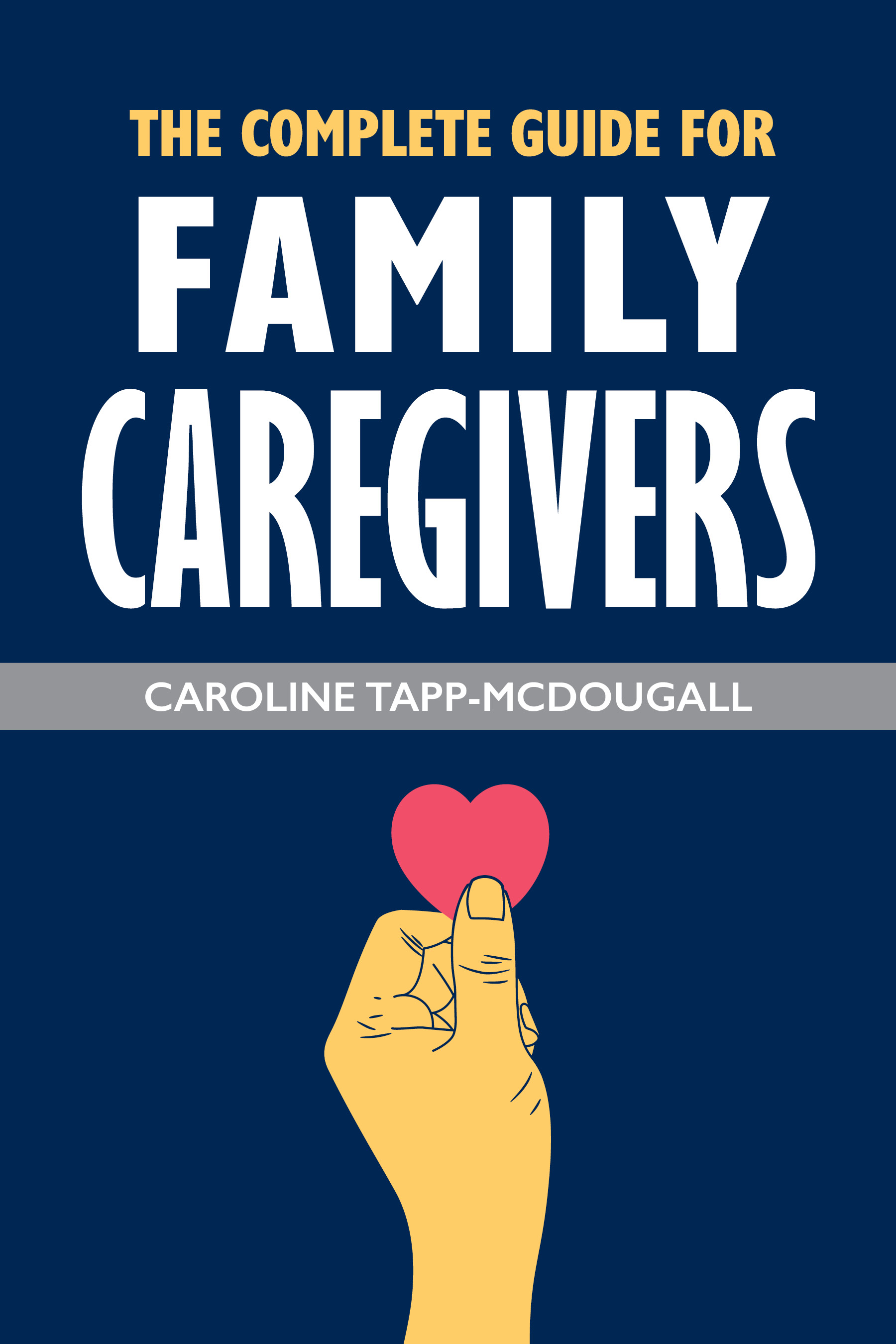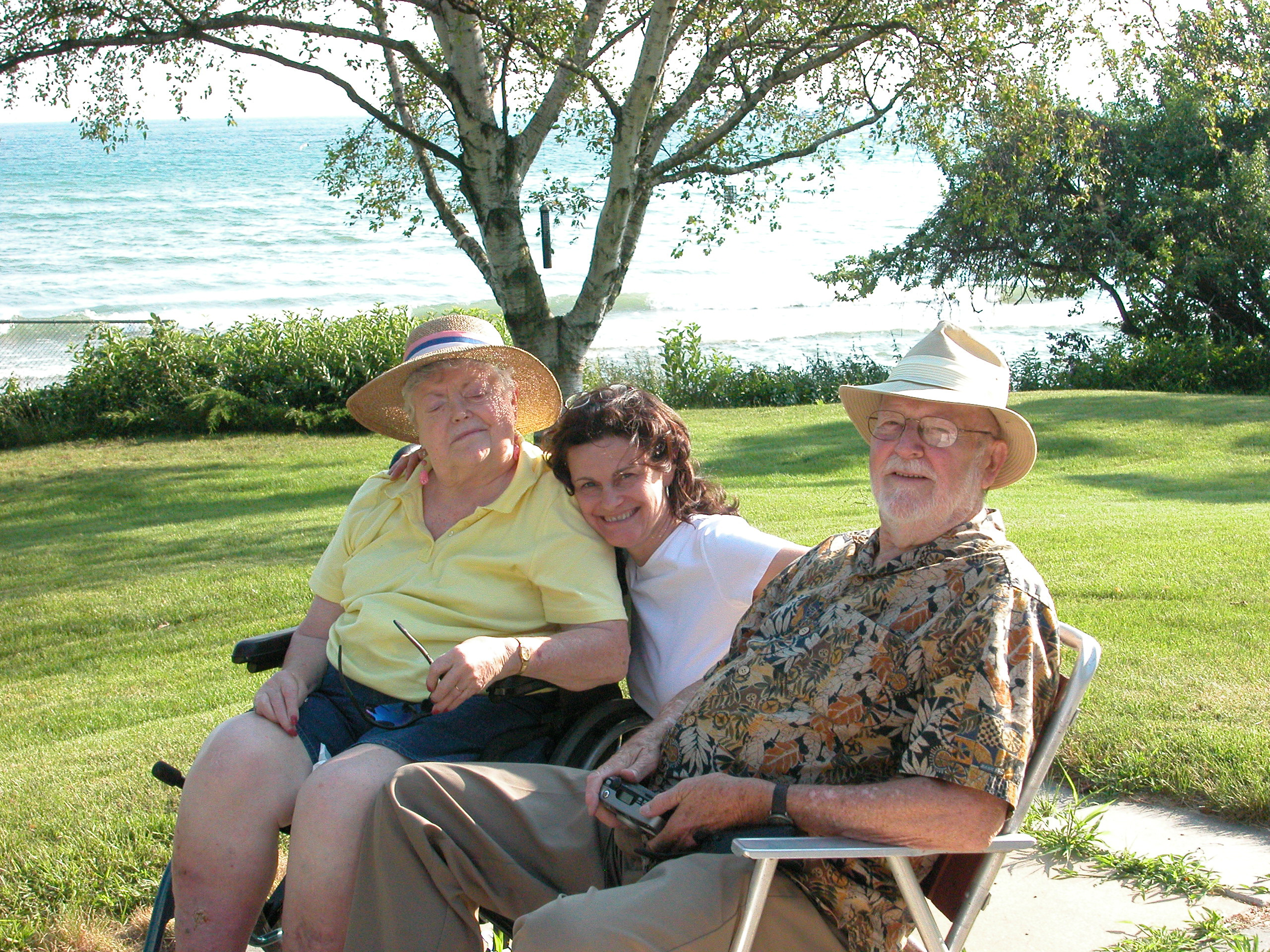Caroline Tapp-McDougall is the publisher of Caregiver Solutions magazine, a Canadian publication dedicated to the wellness of seniors, their caregivers, and their families. She is one of Canada’s foremost experts on eldercare, and has applied her extensive knowledge and experience to The Complete Guide for Family Caregivers, a book that provides the advice people need to make smart decisions, both with and for their loved ones, including housing, finances, medical needs, independence, mobility, legal and estate planning.
Join us as we chat with Caroline about her helpful guide for family caregivers!
What inspired you to begin writing the The Complete Guide for Family Caregivers?

My inspiration came from my own caregiving experience with my parents. Mum lived for 12 years after having a serious stroke and needed 24/7 nursing care, so I became a long-distance family caregiver. Dad was diagnosed with ALS and was able to stay at home for several years before he had a terrible fall while he was in hospital for pneumonia. Their needs were very different and so was their care.
I was the responsible “only daughter’, living and learning as I went. Their needs were 24/7 and managing their care was a huge responsibility. There were lessons learned about self care, how to navigate the healthcare system, how to cope with stress, my career, family life and caregiving and oh, those bills and household tasks….
I wrote this book to help others know they aren’t alone, that no one has all the right answers and that there are always options and new things you can try.
Caregiving is always challenging but especially now during the Covid-19 pandemic. What should caregivers be aware of?
COVID-19 adds a whole new layer to caregiving and following doctor’s instructions.
Firstly, more people need care and support from other family members right now and there is less support in the system for caregivers and people with disabilities and medical conditions. It’s really been an isolating and lonely time for those who have been shut in.
And, with COVID-19, even a trip to the shops or the doctor’s office presents new risks and things to think about and plan for on top of the main mission.
Managing caregiver stress and the need for self-care are more important than ever and so is asking for help. The good news, Covid comes with a silver lining of better home delivery services and increased workplace flexibility. Additional caution when visiting or dropping off groceries is necessary and so are systems to manage staff, PPE and visits to hospitals etc. Clearly, COVID-19 brings a whole knew meaning to taking care of loved ones, and yourself.
Simply put:
- Understand the risks and precautions around COVID. Some great sites to use are:
- Prioritize online ordering and video calls with health professionals rather an in-person visits.
- Prioritize self-care and sleep.
- Follow a strict cleaning/PPE protocol for people and products coming into the home.
- Ask for help.
If someone has just become a caregiver, what are the first three things they should do?
Health card, SIN and insurance numbers
Doctors info and list of medications
Key financial info and POA for personal care and property
3. Communicate honestly with the person you are caring for: I’m a firm believer in bringing the person being cared for into the equation. After all, it’s their life. What do they want? What are you able to do? What expectations do you both have and what’s realistic? In other words, sort things out between you as much as possible at the start. This might be a challenging journey so the more you know ahead of time, the better equipped you’ll be to give/get the best care and avoid misunderstandings or disappointment.
What have you learned through writing The Complete Guide for Family Caregivers?
I was constantly reminded about how complex and diverse the caregiving role can be. That it takes a mix of physical, emotional strength. I was also reminded and impressed all over again by the number of things most caregivers need to think about and juggle.
It also reminded me of the good times I spent with both of my parents when we had to stop the world and figure out, in the middle of our chaos, what was important to us. And some days, it was simply watching a funny movie, to heck with the laundry and the dishes!
What is your hope for how The Complete Guide for Family Caregivers can help people?
Read The Book!
The Complete Guide for Family Caregivers is currently available to purchase from your local indie bookseller or Indigo/Chapters, Amazon and Caregiver Solutions.












